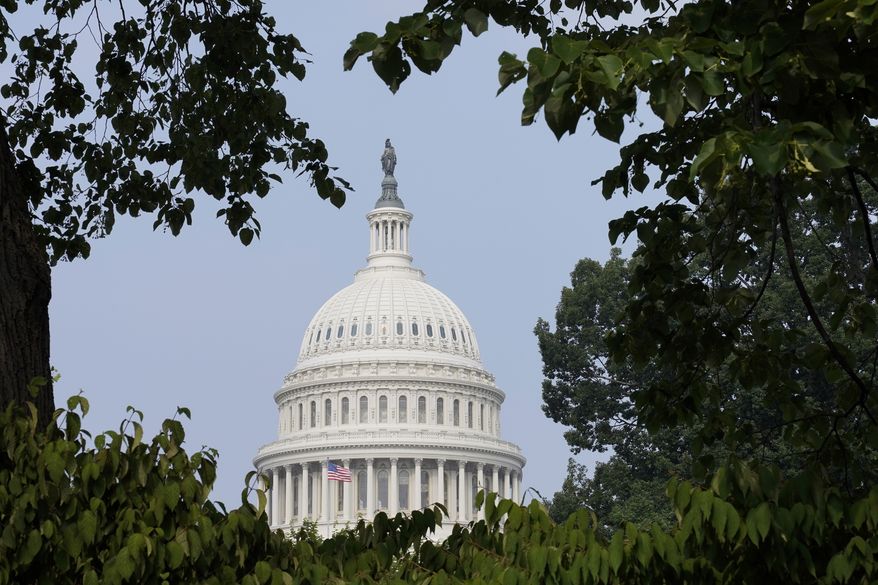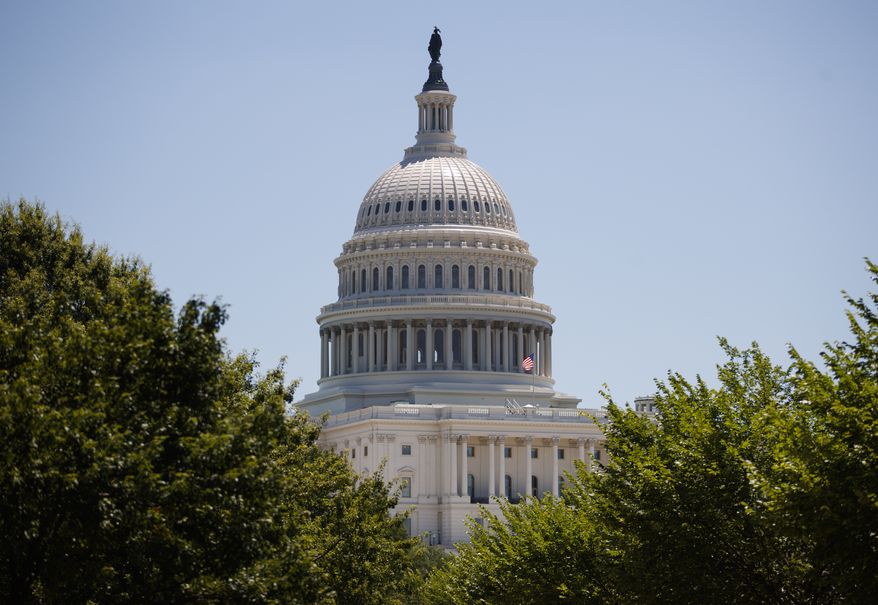Congress returns to confront must-pass defense bill, Supreme Court ethics and nomination headaches

The Senate is preparing to fight over the ethics standards of the Supreme Court and President Biden’s policies on military affairs.
One of the few bills that are always a must-pass is the $886 billion National Defense Authorization Act. House conservatives use the legislation to oppose the Pentagon’s progressive policies on social personnel. This could lead to a fierce policy battle when the measure is debated this week.
The NDAA, which was approved by the Armed Services Committee in June, has received more than 1,400 changes, including a new revolt from progressives who want to stop Mr. Biden’s decision to supply cluster munitions for Ukraine’s military. The liberal Democrats claim that the munitions are in violation of human rights, and the president says Ukraine is running low on ammunition to defend against Russian invasion.
The GOP’s wish list includes measures that prevent funding for diversity and equity practices in the armed forces, cut funding for gender-transition surgeries, and ban funding to the education branch of the military for teaching critical race theory. Rep. Matt Gaetz of Florida is proposing to stop cannabis testing in the military.
|
A coalition of prolife groups has also urged House Republicans to use their debate on the NDAA in order to revoke administration policy allowing time off for service members and reimbursements for travel expenses to have abortions. The groups, in a letter obtained first by Fox News Digital urged lawmakers to repeal the Department’s “illegal policy” through the NDAA to “allow a clean’ bill to be moved forward.”
It is ultimately up to the House Rules Committee to decide which amendments are put forward for floor voting.
Democrats in the Senate’s Judiciary Committee are planning to introduce legislation that would impose ethical standards for Supreme Court justices. Judiciary Committee chair Sen. Richard J. Durbin announced the move after a series major Supreme Court decisions that angered liberals.
The Supreme Court ended its term last Thursday with rulings that torpedoed the $400 billion plan of President Biden for student loan debt relief and dismantled affirmative action based on race in college admissions.
Senate Democrats addressed the ethics issue following reports that conservative justices received lavish gifts from wealthy Republican activist.
In a press release, Illinois Democrat Mr. Durbin said that the Judiciary Committee was required to act because the chief justice refused to do so. “The highest court of the country should not have the worst ethical standards.”
This week, the Senate Armed Services Committee will hold two nomination hearings to determine key appointments for the Joint Chiefs of Staff. These are among the more than 250 nominations for military positions that Sen. Tommy Tuberville (a Republican from Alabama) has delayed.
Mr. Tuberville’s opposition to the Pentagon abortion policy is preventing him from obtaining the unanimous consent required to promote hundreds of candidates and nominees.
The Senate can still confirm them despite the blockade by Mr. Tuberville, which started in March. The Senate would still have to vote on each nominee individually, but this would take a long time.
In an op-ed in the Washington Times, Mr. Tuberville stated that he would not stop any nominees from being promoted or approved, and he placed the responsibility of voting on Senate Democrats.
Tuberville wrote that it was reasonable for the Senate vote to be held on these nominations. Shouldn’t we carefully consider the candidates for the most powerful military positions?
On Tuesday, the Senate committee will examine Gen. Charles Q. Brown as chair of the Joint Chiefs of Staff. Gen. Brown will replace retiring Joint Chiefs of Staff chair Gen. Mark A. Milley on October 1.
On Wednesday, the panel will review Gen. Randy A. George’s nomination to succeed Gen. James McConville as Chief of Staff of the Army. Gen. McConville will leave his post on August 9.









No Comments